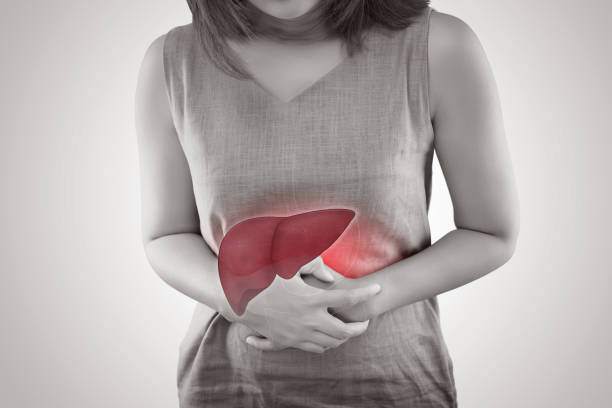Introduction
Hepatitis, an inflammation of the liver, can be caused by various factors, including viruses, alcohol, toxins, and autoimmune diseases. It’s essential to understand the best strategies for managing hepatitis effectively. In this comprehensive guide, we’ll explore the top 10 strategies to help individuals cope with hepatitis, offering insights and advice for each.
Understanding Hepatitis
Hepatitis is a condition characterized by liver inflammation. It can be acute or chronic, caused by viruses (such as hepatitis A, B, or C), excessive alcohol consumption, autoimmune diseases, or certain medications and toxins.

Types of Hepatitis
There are several types of hepatitis, including:
Hepatitis A: Transmitted through contaminated food or water.
Hepatitis B: Transmitted through bodily fluids, such as blood or semen.
Hepatitis C: Often spread through contact with infected blood.
Autoimmune Hepatitis: Occurs when the body’s immune system attacks the liver.
1. Vaccination
Vaccination is one of the most effective ways to prevent hepatitis, particularly hepatitis A and B. By getting vaccinated, individuals can significantly reduce their risk of contracting these viral infections.
Benefits of Vaccination
Provides long-term immunity.
Prevents the spread of hepatitis to others.
Reduces the likelihood of developing chronic liver disease.
2. Practice Safe Hygiene
Practicing good hygiene is crucial for preventing the spread of hepatitis, especially hepatitis A and B, which can be transmitted through contaminated food, water, or bodily fluids.
Key Hygiene Practices
Handwashing: Regularly wash hands with soap and water, especially before eating and after using the restroom.
Safe Sex: Use condoms to prevent the transmission of hepatitis B and other sexually transmitted infections.
Food Safety: Ensure proper hygiene when handling and preparing food to prevent contamination.

3. Limit Alcohol Consumption
Excessive alcohol consumption can exacerbate liver damage in individuals with hepatitis, particularly those with chronic hepatitis B or C. Limiting alcohol intake is essential for protecting liver health.
Effects of Alcohol on Hepatitis
Increases the risk of liver cirrhosis and liver cancer.
Impairs liver function and regeneration.
Interferes with hepatitis treatment effectiveness.
4. Maintain a Healthy Diet
A balanced and nutritious diet plays a vital role in supporting liver health and managing hepatitis. Certain foods and dietary habits can help alleviate symptoms and reduce the risk of complications.
Liver-Friendly Foods
Fruits and Vegetables: Rich in antioxidants and vitamins that promote liver detoxification.
Whole Grains: Provide fiber and essential nutrients for overall health.
Lean Proteins: Sources of high-quality protein without excess fat.
5. Seek Medical Treatment
For individuals diagnosed with hepatitis, seeking medical treatment is essential for proper management and care. Medical interventions, such as antiviral medications, can help control viral replication and prevent liver damage.

Medical Interventions
Antiviral Therapy: Targets viral replication to reduce the viral load in the body.
Liver Function Tests: Monitor liver enzymes and assess liver health.
Regular Check-ups: Ensure timely evaluation of liver function and disease progression.
6. Practice Safe Needle Use
Hepatitis C is commonly transmitted through exposure to infected blood, often via contaminated needles or syringes. Practicing safe needle use is crucial for preventing hepatitis C transmission.
Needle Safety Tips
Use Sterile Equipment: Avoid sharing needles or syringes with others.
Dispose of Sharps Properly: Dispose of needles in designated sharps containers to prevent accidental needle sticks.
Seek Support: Access needle exchange programs or healthcare services for safe injection practices.
7. Maintain a Healthy Weight
Obesity and excess body weight can contribute to liver fat accumulation and inflammation, increasing the risk of liver disease progression in individuals with hepatitis.
Weight Management Strategies
Regular Exercise: Engage in physical activity to promote weight loss and improve metabolic health.
Healthy Eating Habits: Adopt a balanced diet low in processed foods and high in fruits, vegetables, and lean proteins.
Monitor Body Weight: Track weight changes and consult healthcare providers for personalized weight management plans.
8. Avoid Hepatotoxic Substances
Certain medications, supplements, and recreational drugs can be hepatotoxic, meaning they can cause liver damage or exacerbate existing liver conditions.
Common Hepatotoxic Substances
Acetaminophen (Tylenol): Overuse or overdose can lead to liver toxicity.
Herbal Supplements: Some herbal remedies may contain toxins harmful to the liver.
Illicit Drugs: Substance abuse, including cocaine and heroin, can contribute to liver damage.
9. Manage Stress
Chronic stress can negatively impact liver health and exacerbate hepatitis symptoms. Implementing stress management techniques is essential for promoting overall well-being.
Stress Reduction Strategies
Mindfulness Meditation: Practice mindfulness and relaxation techniques to reduce stress levels.
Physical Activity: Engage in regular exercise to alleviate stress and improve mood.
Seek Support: Connect with friends, family, or support groups for emotional support and coping strategies.
10. Stay Informed and Educated
Education and awareness are crucial for effectively managing hepatitis and reducing the stigma associated with the condition. Stay informed about the latest developments in hepatitis treatment and care.



